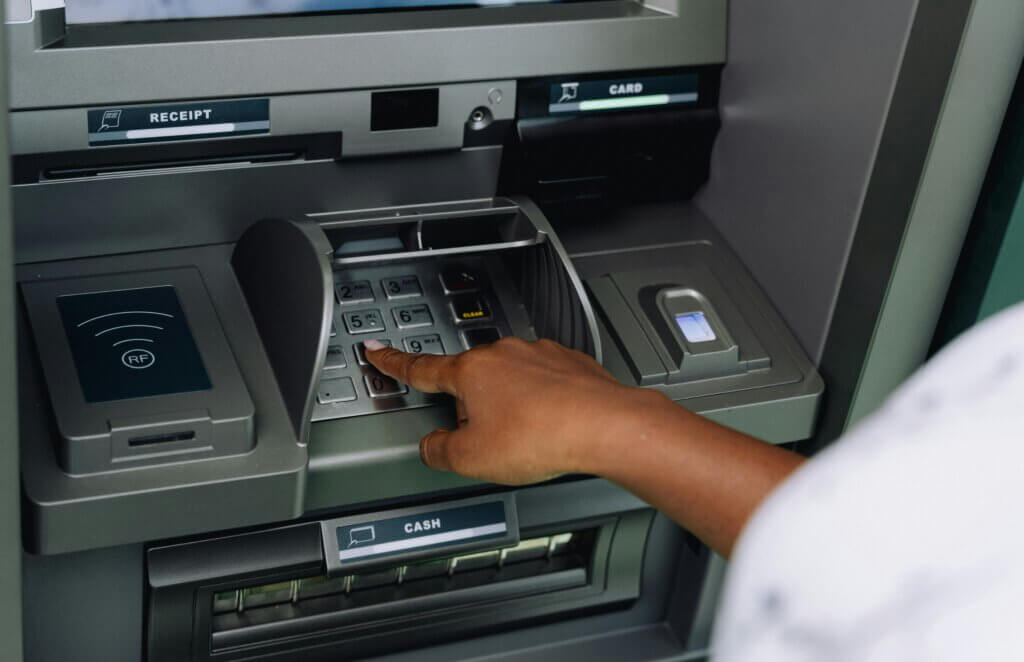Getting into debt can happen to anyone.
Maybe it started with a situation beyond your control: an unexpected medical bill, long-term unemployment, or having to put everyday expenses, like groceries and utilities, on credit cards when money was tight.
What often starts out as a temporary solution, like borrowing to cover necessities, can spiral out of control when high interest rates and fees get added to balances you’re already struggling to pay off.
When you’re dealing with the crushing weight of debt, debt settlement can seem like a lifeline.
This article will help you get your head around what debt settlement is, explore both the benefits of debt settlement and the drawbacks, and help you decide whether it’s right for you.
We’ll also cover alternatives that might work better, and red flags to watch out for.
What Is Debt Settlement?
Debt settlement is a process where you negotiate with your creditors to pay back less than the full amount of the debt you owe. Most people work with a debt settlement company rather than trying to handle the negotiations themselves.
Once a creditor accepts the settlement, they can’t continue trying to collect from you, and you no longer have to worry about getting sued over that particular debt.
Debt settlement can give you a plan for becoming debt-free, which can be a huge relief.
However, debt settlement isn’t free.
Most companies charge fees ranging from 15-25% of the total debt they settle for you. So if they help you settle $10,000 in debt, you might pay them $1,500 to $2,500 in account setup and management fees, and none of that money goes toward paying down your debt.
By law, debt settlement companies can only charge you these fees once the debt has been settled.
The Typical Steps Involved
Here’s how the debt settlement process generally works:
- Most debt settlement companies will tell you to stop making payments to show financial hardship. Typically, creditors are more willing to negotiate with you when they think you genuinely can’t pay off the full amount of your debt.
- While you’re not paying creditors, you’ll need to save money to fund eventual settlement offers. Most settlements require a lump sum payment because creditors want to get paid immediately rather than waiting for monthly payments.
- The debt settlement company will handle negotiations. They’ll contact your creditors on your behalf to negotiate reduced payoff amounts. This part can take months and often involves multiple back-and-forth discussions.
- Once the creditor agrees to a settlement, you’ll usually need to pay it off all at once or in a few larger installments.
Debt settlement typically takes two to four years and isn’t always successful.
Keep in mind that creditors may also decide to sue you for the debt, especially if months go by without any progress on negotiations.
Types of Debt That Can and Cannot Be Settled
Debts that can typically be settled:
- Credit card debt.
- Medical bills.
- Personal loans.
- Some business debts.
Debts that generally can’t be settled:
- Federal student loans (you may qualify for income-driven repayment plans or forgiveness programs, but the government rarely accepts settlements).
- Secured debts like mortgages or car loans.
- Tax debt (especially from the last few years).
- Child support or alimony.
It’s important to know which debts qualify for settlement because if most of yours don’t, it won’t solve your financial problems.
The Potential Benefits of Debt Settlement
While debt settlement has significant drawbacks (which we’ll cover next), it can offer real advantages for people in certain situations.
Reduce Your Debt Load
Many people use debt settlement because they get to pay back far less than the original amount owed.
Depending on your situation and how well the negotiations go, you might settle debts for 30-50% of the original balance.
Become Debt-Free Quicker
For some people drowning in debt, settlement feels like the quickest way to get out from under their financial burden. Instead of making minimum payments for decades, you could potentially be debt-free in a few years.
Avoid Bankruptcy
Settlement can provide an alternative to filing for bankruptcy. Chapter 7 bankruptcy wipes out most debts but can seize your assets like your home or car to pay creditors, while Chapter 13 creates a 3-5 year court-supervised repayment plan for your debts.
Both settlement and Chapter 13 may stay on your credit report for up to seven years; Chapter 7 bankruptcy can linger for up to 10 years.
Avoid Getting Sued
Creditors can sue you after several months of missed payments.
But if they think you’re serious about finding a solution through settlement, they may be less likely to take you to court. Once you have a settlement agreement, the legal threat goes away for that specific debt.
The Cons of Debt Settlements
Now let’s look at the downsides of debt settlement, because they are significant and could seriously impact your finances.
Negative Impact on Credit Score
Debt settlement can tank your credit score. The process typically requires stopping payments, which creates late payments, charge-offs (when creditors write off your debt as a loss), and collections accounts on your credit report.
These could mar your credit report for up to seven years, which means you could have trouble getting loans, credit cards, apartments, or even some jobs that check your credit history.
Your credit score could drop by as much as 100 points before the debt settlement process even starts. If you’re starting out with good credit, the hit to your score can severely limit your financial options.
Legal Repercussions
There’s always a risk of getting sued by creditors. Credit card companies typically sue after about six months of missed payments. While you’re not making payments during the settlement process, creditors might decide to sue you instead of negotiating.
If they win a judgment, they could garnish your wages, put a lien on your house or other property, or freeze your bank accounts in states where this is allowed. This is why debt settlement is such a risky strategy—there’s no guarantee it will work.
Tax Implications
The IRS considers forgiven debt as taxable income because you received a financial benefit. If a creditor forgives $6,000 of debt, you might have to pay income taxes on it.
For example, if you settle $12,000 in debt for $20,000, you might owe taxes on the $8,000 that was forgiven. Depending on your situation, this could mean paying an extra $1,000 or more in taxes.
You’ll typically pay the taxes when you file your return for the year the debt was settled, which can create an unexpected tax bill when you may already be struggling financially.
Fees
As mentioned earlier, debt settlement companies typically charge substantial fees—often 15-25% of the debt they settle. So if they settle $20,000 in debt, you might pay them $3,000 to $5,000 in fees.
Some companies also charge monthly fees while they’re working on your case, which can add up. Always be clear about what you’re paying for before signing up to enroll in a debt settlement program.
Bad Actors
The debt settlement industry attracts its share of shady companies that prey on desperate people. Some will take your money and disappear. Others make wild promises they can’t possibly keep.
You’ll see ads promising to “eliminate your debt overnight” or “reduce your payments by 90%.” If it sounds too good to be true, it probably is. Many of these companies charge upfront fees (which is illegal) and deliver poor results.
Is Debt Settlement Right for You?
The cons of debt settlements far outweigh the benefits for some people, but it really depends on your financial situation and goals, how quickly you need to get out of debt, and if you have other avenues available to you to pay it off.
Deciding whether debt settlement makes sense for you requires an honest look at your financial situation and options.
Alternatives to Debt Settlement
Before considering debt settlement, explore these other options that might be better for your long-term financial well-being:
- Debt management plans: nonprofit credit counseling organizations like the National Foundation for Credit Counseling can help you create a debt repayment plan with potentially reduced interest rates and lower monthly payments. You’ll still pay back the entire amount you owe, but the terms will be more manageable.
- Debt consolidation: this means taking out a new loan to pay off multiple existing debts, or transferring several credit card balances to a new card with a promotional 0% interest rate. It generally works best if you still have decent credit and can qualify for better rates.
- Credit counseling: professional counselors from agencies like Consumer Credit Counseling Service can help you create a realistic budget and negotiate with creditors for more manageable payment arrangements. Many creditors offer hardship programs for those with financial difficulties.
- Negotiating directly with creditors: creditors may be willing to work with you if you call and explain your situation honestly. Many might reduce interest rates, waive fees, or create payment plans if you ask, especially if you can make a larger payment up front.
- Debt payoff strategies: focus on paying off one debt at a time while making minimum payments on others. While this method takes discipline, it can preserve your credit and saves you money on debt settlement fees.
Take time to explore all your options before deciding on debt settlement. Your situation is unique, and what works for someone else might not be the best choice for you.
Common Debt Settlement Situations
Debt settlement might be worth considering in these circumstances:
- If you’re seriously considering bankruptcy due to overwhelming debt and can’t make even minimum payments, settlement could be a better option with less severe long-term consequences.
- When you’ve exhausted other options like debt management plans, debt consolidation, and direct negotiation without success, settlement might be your next step.
- Settlement works best when most of your debt is unsecured (i.e. consists of credit cards and personal loans), rather than secured debts like mortgages.
- You’ll need money upfront to make settlement offers that creditors will actually accept. Without cash on hand to use for this purpose, the settlement process won’t work.
In addition to your situation, keep in mind that some major credit card companies and banks are more willing to negotiate than others. Smaller creditors or collection agencies may be less likely to settle.
When To Avoid Debt Settlement
Here are some situations where debt settlement probably isn’t your best choice:
- If you can make minimum payments, you’re better off paying off your debt over time instead of settling. Why damage your credit when you have other options?
- If you’re planning to buy a house, get a car loan, or make other major purchases in the next few years, the credit score fallout from settlement could prevent you from qualifying for good rates.
- If you’re close to retirement, damaging your credit could make it harder to get housing, insurance, or other services when you’re living on a fixed income and financially vulnerable.
- If you don’t have cash available, as you’ll generally need to make lump sum offers to creditors.
As a final note, if a debt settlement company has bad reviews or reputation, avoid them. Especially if they ask you to pay upfront—this is generally illegal and might be a scam.
Making the Right Decision for You
Debt settlement is a serious financial decision that can provide relief in certain situations, but it’s definitely not a silver bullet.
The process comes with significant risks that you need to weigh carefully against the potential benefits.
When it comes to getting debt relief, thoroughly research your options and decide based on your specific situation. Whatever you choose, know that the goal is finding a path that leads to lasting financial stability and peace of mind.
If you’re struggling with debt, remember that financial setbacks happen to everyone, and there’s no shame in seeking help. The right solution is the one that not only addresses your current debt, but also sets you up for long-term financial success.
At Kudzu, we understand that everyone’s financial journey is different, and we’re here to support you wherever you are in the process.
Whether you’re working through debt challenges or looking for help building better financial habits, we offer practical resources designed to help you achieve your financial goals.
Ready to get started? Sign up for Kudzu and get access to tools that can help you track your spending, save for future goals, and take charge of your money.



